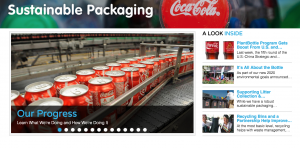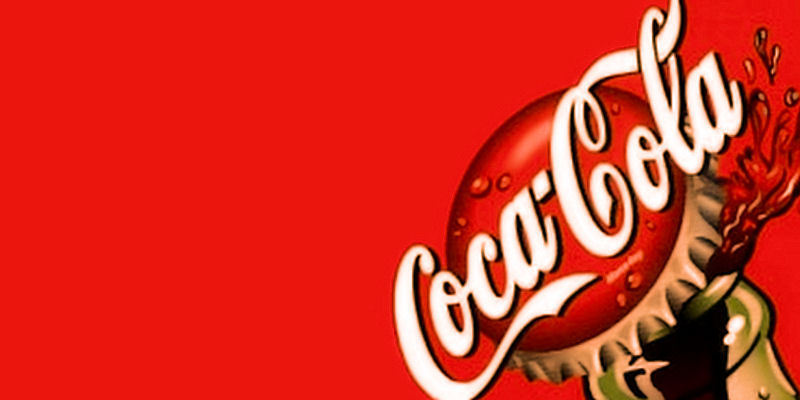Last week we learned that a company is able to achieve green growth through three different strategies. Accentuating its current green practices, acquiring other green brands, or architecting new green practices within the company.
Although these strategies seem straight forward, they have proved to be difficult to implement for many big names companies such as Coca-Cola. The company has put significant effort in building its social and environmental responsibility initiatives. To some extent I believe this can be seen as the ‘architect’ strategy where Coca-Cola is incorporating green growth into its operations, such as its initiative to implement sustainable methods of packaging and taking ownership of collecting its used bottles.

Furthermore, Coca-Cola has tried the strategy involving acquisition several times, but perhaps received more negative feedback than positive through this strategy. One recent example includes their acquisition of UK owned company Innocent drinks, which has garnered significant backlash and has consumers questioning whether the ethical ethos that set these drinks apart in the first place, will be lost.

The obvious problem of architecting and acquiring with companies like Coca-Cola, who have established themselves for being ‘big and bad’ is that the general public no longer believes that they introduce initiatives for altruistic reasons. Many of their efforts are simply dismissed as stemming from greed and being another means to generate profit.
I recently had a thought that perhaps the acquisition strategy would work more effectively if Coca-Cola looked to purchase smaller green focused companies that have less media attention and to work with them to make the brand successful. Although there would be significantly more risk with this strategy, it may just be able to silence some critics.
What do you think?


Its interesting to see a lot of the Consumer Packaged Goods companies moving into this direction as well, acquiring green/healthy brands instead of launching their own green initiatives.
The health trend is definitely hurting these large multimillion companies but at the end of the day, they still need to innovate to stay competitive. I think that while acquiring brands will happen for sure, those companies will still need to allow consumers to opt for “healthier” options with their current product offerings.
From the natural foods perspective, once the brand has been bought out, there will be a bit of a backlash of how it is owned by a “big and bad” company. However, if the brand maintains its core values and how it operates, the acquiring company will be giving it enough resources to continue to innovate and be available mass market to all consumers.
Hey Sarah,
It’s funny how I’ve already seen a good 2-3 people blog about Coke, myself included. It’s definitely a contentious topic that people can argue about for days. Sammie brings up very valid points on how at the end of the day, large multinational companies end up adapting in the way they see fit in order to stay relevant in the minds of consumers. In this case, it’s the need to be perceived as sustainable. I want to tackle this from a slightly different angle and say, would the world be better of if Coke did not make this type of effort? Again, yes and no. Yes in the extreme case means that Coke suffers monumental losses from not being able to adapt, then companies that do produce sustainable products would be the most successful in market. On the other hand, no because if a large company such as Coke operates in a sustainable fashion, then for the most part, this can only be a good thing compared to them operating in a way that’s unsustainable. Their market leadership position in several product categories could have then influence other players in the market to adapt in the way Coke has. Oh and, whatever happened to Innocent? Did it survive?